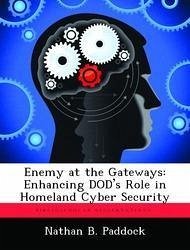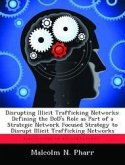Every day, hackers use the Internet to "virtually" invade the borders of the United States and its critical infrastructure. National leadership must determine whether these intrusions constitute an attack or merit the declaration of a national emergency. In times of war, cyber attackers may attempt to monitor communications or disrupt information systems and other systems critical to national infrastructure. Formed in 2002, the Department of Homeland Security(DHS) holds lead agency status for many initiatives of the National Strategy to Secure Cyberspace (NSSC). The NSSC identifies critical infrastructures and key resources (CI/KR) that must be protected from physical or virtual attack. Current national strategy calls for the Department of Defense (DoD) to protect the defense industrial base (DIB), one of seven identified sectors of CI/KR. DoD components include the Office of the Secretary of Defense, the Joint Staff, the Military Services, Unified and Specified Commands, Defense Agencies, and field activities. DoD can contribute significantly to the protection of the nation from attacks directed against the United States via cyberspace by leveraging current resources and capabilities to augment ongoing initiatives and working to develop more effective homeland defense solutions. Along the way, DoD must continue working to protect the DIB from the information collection efforts of foreign intelligence services and organized crime, as well as from potential terrorist efforts to destroy or hold hostage critical information. Sensitive but unclassified (SBU) information seems to be more at risk than classified program information at this time, so current DoD efforts aim to secure the unclassified networks and databases of defense contractors. DoD can and should exceed the expectations laid out by the President of the United States in national strategy. Cooperation and information sharing will be the key.
Hinweis: Dieser Artikel kann nur an eine deutsche Lieferadresse ausgeliefert werden.
Hinweis: Dieser Artikel kann nur an eine deutsche Lieferadresse ausgeliefert werden.








